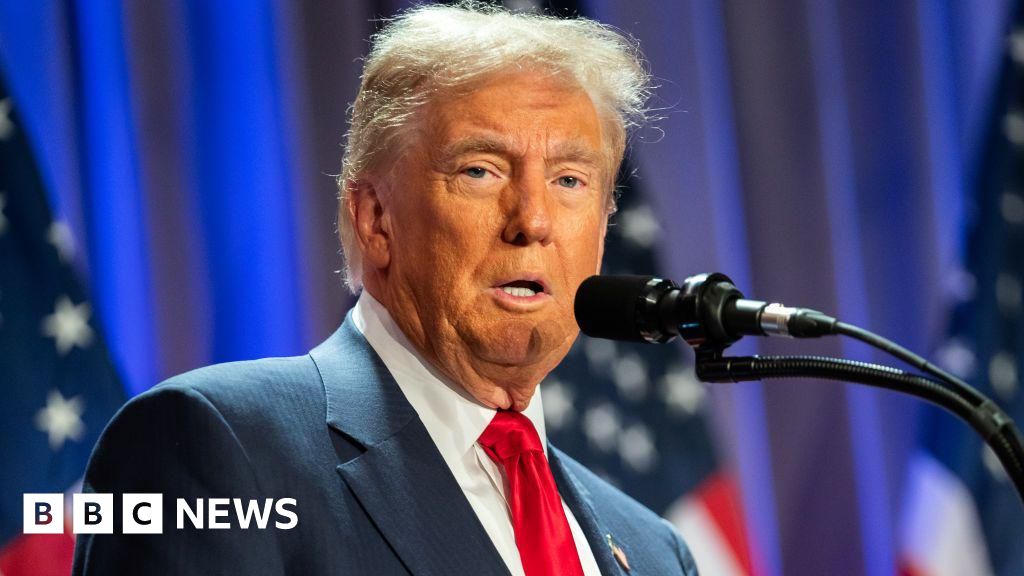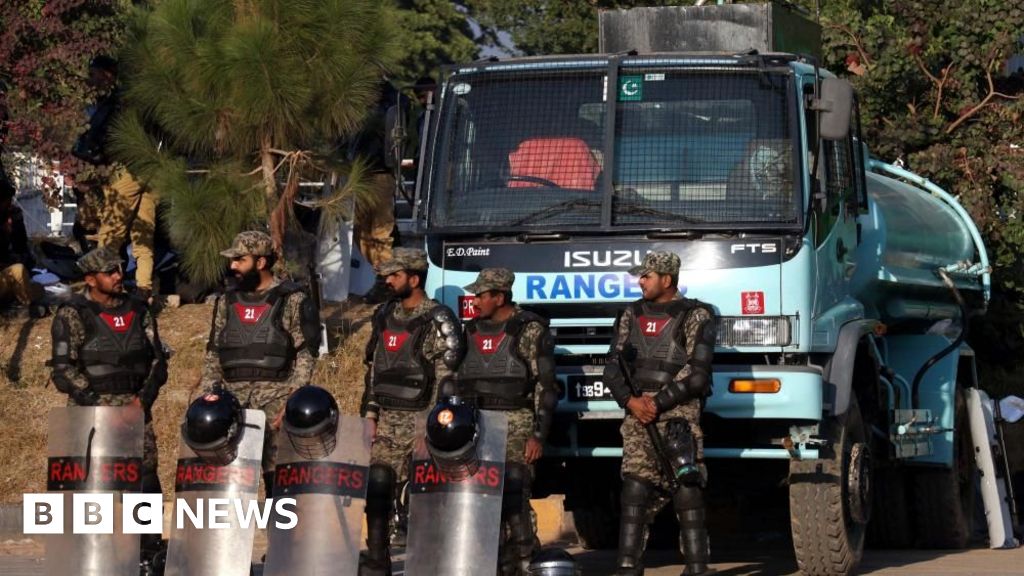ARTICLE AD BOX
Kamala Harris accepts Democratic nomination "on behalf of the people"
Kamala Harris formally accepted the Democratic presidential nomination on Thursday night, delivering a speech which hit the key notes her campaign wanted - but had only rare moments of soaring rhetoric and broke little new ground.
The ground-breaking was in the nature of the nominee herself - the first woman of colour to become a major party's presidential nominee.
“Never let anyone tell you who you are,” Ms Harris said. “You show them who you are.”
But for roughly 45 minutes on Thursday, she tried to tell Americans who she is - and what she would do if she wins the White House.
Here are four takeaways from her convention-closing remarks.
1. Harris promoted her middle class roots
Many Americans know who Ms Harris is, but not many know what she believes in or details of her background. First and foremost, her convention speech set out to change that.
She recounted her mother’s journey as an immigrant from India. She spoke about how her parents met – and how they ultimately divorced. She talked about her childhood upbringing in a working-class neighbourhood in Oakland, California.
“The middle class is where I come from,” she said. “My mother kept a strict budget. We lived within our means. Yet, we wanted for little. And she expected us to make the most of the opportunities that were available to us.”
Ms Harris also spoke of why she chose to become a lawyer – and a prosecutor. She drew a line from her early days in the courtroom to her public services as a politician.
“My entire career, I have only had one client,” she said. “The people.”
2. A vision for the future - with few details
Ms Harris’s speech included calls for unity and a pathway beyond the “bitterness, cynicism and divisive battles” of modern American politics.
She said that the US had a “precious, fleeting” opportunity to “chart a new path forward”. But that chart had few details.
Vague calls for unity and a path beyond partisanship are rhetoric many presidential hopefuls have used in the past.
When Ms Harris did turn to policy details, she spoke in generalities.
She said she will be focused on lowering the costs of “everyday needs” – including healthcare, housing and groceries. She specifically called out abortion rights – and framed it as a means of preserving freedom, which has been a recurring theme at this Democratic convention.
“America cannot truly be prosperous unless Americans are fully able to make their own decisions about their own lives, especially about matters of heart and home,” she said.
Ms Harris, in her speech, styled herself as a center-left moderate, putting little daylight between her policies and those of her boss, the man she hopes to replace, Joe Biden.
“Everywhere I go, in everyone I meet, I see a nation ready to move forward,” she said. “Ready for the next step, in the incredible journey that is America.”
The exact details of that step, however, are to be determined.
3. An unchanged Gaza war message
As pro-Palestinian protesters marched outside the convention, Ms Harris devoted particular attention in the foreign-policy section of her speech to the Gaza War.
Here, yet again, there was little difference between her rhetoric and views and those of Mr Biden – and she linked herself to the president several times.
“President Biden and I are working around the clock,” she said, “because now is the time to get a hostage deal and ceasefire done.”
She also pledged to ensure that Israel always has the ability to defend itself and took particular note of the brutality of the 7 October Hamas attack.
For a moment, it sounded like some in the crowd would jeer, but Ms Harris quickly moved on to the plight of Palestinians, saying that the scale of their suffering was “heartbreaking”.
That will hardly be enough to satisfy the protesters outside, however, and they could return to their homes – some in key battleground states like Michigan – convinced that a Harris presidency would be a continuation of the Biden Gaza War policies.
4. Trump is an 'unserious man' but serious threat
Two days ago, Michelle and Barack Obama formed a tag-team that belittled former president Donald Trump for what they charaterised as his small obsessions and petty personality.
Ms Harris also took swipes at her Republican opponent, but they were pretty standard fare for Democrats – including Mr Biden - over the past few months.
“In many ways, Donald Trump is an unserious man,” she said. “But the consequences of putting Donald Trump back in the White House are extremely serious.”
She brought up the 6 January attack on the US Capitol by Trump supporters, and mentioned his criminal convictions.
She also hit what has become a favourite Democratic punching bag, the Heritage Foundation’s Project 2025 blueprint for a Republican presidency. Although the former president has disavowed the plan, she noted that it was written by his advisers and it sought to “pull our country back into the past”.
The future vs the past contrast has been a central theme of the Harris campaign so far, as it was in her nomination acceptance speech.
It’s one of the ways the vice-president has been able to draw a distinction not only from her current Republican opponent, but from the unpopular aspects of her boss, Joe Biden, who just a few weeks ago was the presumptive Democratic nominee.


More on US election
SIMPLE GUIDE: Everything to know about the November vote
EXPLAINER: Where the election could be won and lost
BBC VERIFY: Six Harris claims fact-checked
ANALYSIS: Harris faced years of doubt, but she still prepared

 3 months ago
17
3 months ago
17








 English (US)
English (US)